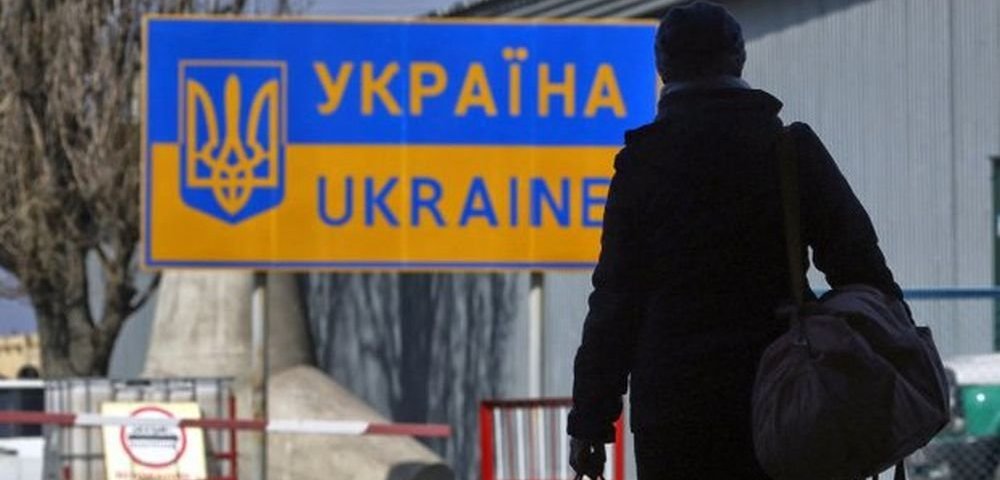
Labour migration is a widespread phenomenon that has been around for years. Since the late 1990s and still today, many people make the decision to seek employment abroad. They see it as an opportunity to earn ‘good’ money in order to improve their and their family’s lifestyle back at home – to build a bigger house, send their child to university, gain access to private medical services, buy better clothes and gadgets… The list goes on. So they pack their bags, kiss their families goodbye and leave in anticipation of a swift reunion and a happier life.
 But what comes next? Research findings demonstrate that labour migration, particularly a lengthy one, is often a ‘lose-lose’ decision for both the labour migrants and their families staying behind. But is this so? And what about the other side of the coin i.e. families employing labour migrants? What do they feel? These and other questions were raised at a convention in Monza, Italy on October, 27th, which attempted to address this issue for the first time in a while.
But what comes next? Research findings demonstrate that labour migration, particularly a lengthy one, is often a ‘lose-lose’ decision for both the labour migrants and their families staying behind. But is this so? And what about the other side of the coin i.e. families employing labour migrants? What do they feel? These and other questions were raised at a convention in Monza, Italy on October, 27th, which attempted to address this issue for the first time in a while.
Organised by Caritas Monza and partners, the convention gathered social workers, pedagogues and psychologists, and featured speakers from the State University of Milan, the University of Trento and the University of Milano-Bicocca, l’Albero della Vita Onlus Foundation, Caritas Monza and Caritas Ukraine. The goal was not only to gain better understanding of the phenomenon, its specificities and impact, from different perspectives, but also to speak out and raise voices of those affected, to find common solutions and ways forward.
Italy currently receives nearly 200,000 Ukrainian labour migrants (official statistic), the majority of whom are women aged 40-60, from Western Ukraine. It is said that the number is currently at its peak and is forecasted to gradually decline, although statistics vary in different sources and many gaps exist, indicating on the need for further research. 80% of women, prior to or just upon arrival in Italy, plan to stay for a short period of time (up to 3 years), earn ‘enough’ money and return home, the majority of them stay much longer (3-10 years or more). As already mentioned, the top motives include the intended improvement in the quality of life back home, as well paying off debt, paying for an emergency or illness of a family member, etc. While in Italy, living in families 24/7 and having close to zero expenditure, women send over 95% of all earnings home in remittances. In 2016, total remittances from Italy to Ukraine equalled 200 mln USD.
There is no doubt that labour migration does bring financial benefits to families staying behind and contributes to certain improvements in their lifestyle. However, psychologists and sociologists have identified a much greater negative impact of labour migration, especially on children, which is often unrecognised and overlooked by parent(s) making the decision to go abroad. Remittances do not replace neither emotional contact nor real communication that are missing, and often lead to dependencies of family members on such regular financial receipts.
 The majority of, if not all, adverse effects of labour migration on children and families staying behind are psychological, and children suffer the most. They are seen as ‘social orphans’ as even though they have mothers, they grow up without them, they sometimes feel abandoned, not loved and guilty. They often live a virtual life, getting used to communicating and expressing their feelings and concerns over the phone or Skype. They struggle to socialise and build trustful relationships with adults, peers and the opposite sex. They hide their emotions and silence problems because the caregiver (often a grandmother, a father or an aunt) often does not understand or listen to them. They lose interest towards education thinking they will follow in their parents’ steps and also become a carer and a housekeeper (so what is the point in getting higher education?). In the extreme cases, they turn into “street children”, join gangs and adopt bad habits.
The majority of, if not all, adverse effects of labour migration on children and families staying behind are psychological, and children suffer the most. They are seen as ‘social orphans’ as even though they have mothers, they grow up without them, they sometimes feel abandoned, not loved and guilty. They often live a virtual life, getting used to communicating and expressing their feelings and concerns over the phone or Skype. They struggle to socialise and build trustful relationships with adults, peers and the opposite sex. They hide their emotions and silence problems because the caregiver (often a grandmother, a father or an aunt) often does not understand or listen to them. They lose interest towards education thinking they will follow in their parents’ steps and also become a carer and a housekeeper (so what is the point in getting higher education?). In the extreme cases, they turn into “street children”, join gangs and adopt bad habits.
In turn, caregivers who stay behind to take care of children struggle to cope. In the majority of cases, the responsibility falls on a grandmother who also has a garden to take care of and less energy to deal with children, especially in teenage years. Generation and gender related conflict is widespread (“he isn’t listening to me; she doesn’t understand me”), leading to stress and anxiety in both parties.
Psychologists, however, note that the real concern is not the above listed adverse effects on children and caregivers which can be addressed and “fixed” by specialists, but a lack or absence of knowledge and understanding of the phenomenon and its consequences by parents who make the decision to go abroad. They do not recognise, or refuse to recognise, the underlying problems and often blame the caregiver for the “inappropriate” upbringing of their child.
On the receiving side, it has been stated, families who employ labour migrants, especially women living with them 24/7, are not just looking for a caregiver or a housekeeper, but want them to become a part of the family, to be compassionate and to love them as their own family. They are also looking for the emotional contact that their own families back home are missing. However, psychologists are concerned whether this is at all possible as women are torn between two families who both ask for their love and devotion. They miss their children and families back home, restrain and hide their emotions. They are lonely and isolated, and experience constant stress, anxiety and sometimes depression. This is often felt by the receiving families and has consequences on their well-being.
The receiving families question whether this will always be the case. Do women become more settled and happy in the long run? Do they become happier if they bring their child over? Or would they prefer a reintegrational package to return home? And most importantly, is labour migration a ‘lose-lose’ decision in the first place, given all of the above-mentioned consequences? Do financial gains outweigh the psychological losses? Many of these questions are still unanswered.
Italy (and Europe in general) has an aging population, which means the demand for caregivers will continue. Hence, there is the urgent need to find answers to these questions, and review labour laws and welfare systems with respect to labour migrants. There is also the need for stronger transnational actions which should focus on: educating the public on the phenomenon and its consequences through stronger campaigns, individual and group counselling; supporting women prior to and during their time abroad through the provision of specialist advice and counselling; contributing towards family reunification (integration and reintegration) either in the receiving country or the country of origin through strengthened laws, cross-country cooperation and cooperation with local stakeholders such as employment agencies, legal services, etc.; and importantly, mediating between the needs of different families (those in Italy and in Ukraine).
This is what, to a degree and with joint efforts, Caritas Ukraine and partners can do. There are bigger challenges, of course, that are outside our control – the economic, political and social factors of a country that influence the decision of people seeking employment abroad. These need to be addressed at a national level. The convention took the first step to open up the discussion and so we invite the Ukrainian and international audience to voice their opinions, share stories and debate.
Tags:

